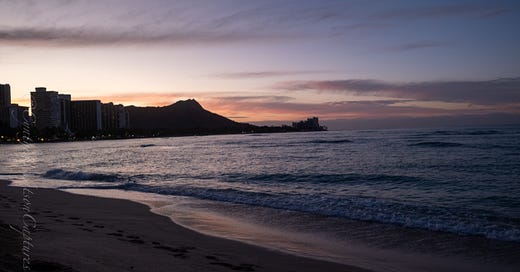I am pleased several readers took me up on circulating my last two columns on Secretary Rubio’s guidance to his new State employees; they generated some conversation in at least a couple of venues. That is the point: thinking and exchanging ideas. As I remind at the end of each column, I do not pretend to have answers to everything! I mean that as I additionally genuinely seek to hear others’ views.
As President Trump is leading a global movement to the right, according to New York Times reporting today, Thailand also made the same edition for the opposite reason. Southeast Asian societies have long harbored distinctly anti-same sex policies, with men and women preferring same-sex partners threaten with jail time, if not death, when their “sins” became public. Islamic societies, which pertains certainly to whole swaths of this region, along with the Catholics of the Philippines have long histories of punishing homosexuality in any form.
Thailand itself was a pretty conservative society when I lived there more than half a century ago. Known for the sex trade available first to U.S. military on R&R during the Vietnam war, then a massive influx of Australian, German, and Japanese men looking for female wiles, prostitution was a socio-economic feature of a struggling society. Women sold their bodies to make ends meet, a reality so harsh for many Americans to admit. It’s hard to assume women seek such demeaning liaisons unless financial need pursues them, in Thailand or elsewhere.
Additionally, repeated military coups against democratically (more or less) elected regimes over the years allowed us to project our societal values on to Thai society. Because the armed forces in this country tend (broad generalization alert, I know) to be more “conservative” in their values, we assumed Thai military governance would overwhelmingly support the same preoccupations. People ignore prostitution and associated crimes against women and children as if the military might not be part of the perpetration of such businesses.
As recently as a generation ago, same-sex weddings were taboo but Thailand is substantially different over the past fifteen years as economic modernization, urbanization, massive dependence on welcoming tourists from across the globe, and an expanded but still evolving political process centered in urban areas has transformed Thailand.
When I had the joy of returning just about a year ago for a reunion, I found Bangkok a transformed place. Not only did I see openly same-sex couples but I saw a massive, modern functioning urban transit system serving a burgeoning city exemplifying what I have witnessed across Southeast Asia since 2011: energy, vitality, optimism, and more tolerance than in the past. Don’t get me wrong as I am sure that rural Thais are less thrilled with some of these changes but the youth are decamping to Bangkok, Chiang Mai, Chiang Rai, and other urban centers for jobs, opportunities, and some measures of freedom unheard of in this fascinating society.
Thais made marijuana legal three years ago in a foreshadowing of the break with more conservative approaches. Long a drug haven, particularly in the northern “Golden (Opium) Triangle”, Thailand appears more focused on potential economic benefits rather than the expense of pursuing a policy never successful at defeating the supply and demand problem demanded by Washington. Too many people were making too much money from the trade when it was illegal so this alters the financial equation by bringing the state revenue collection into play.
The Thais expanded their reputation for tolerance more recently by enacting, with the King’s permission, a same-sex marriage law. I can only imagine the news of the one thousand same-sex weddings as soon as the ban lifted (only this week) will encourage more tourism, more same-sex couples, and likely more social liberalization. While both Nepal and Taiwan also authorize such unions, neither is the destination of choice that so many Thai locations offer. This will reinforce Thailand as a part of the world many people seek to visit.
Tolerance and a welcome mat for this more’ may not last, of course, as contemporary events elsewhere make all too poignant. But, Thais always buck trends a bit, whether as the only Southeast Asian country never formally colonized or as a foreign policy interlocutor with Beijing and Washington at the same time, so who knows where the future will take this change of status for the gay and lesbian communities of the Land of Smiles. But this week’s huge wedding celebrations marked a radical divergence from a single global march into more restrictive rhetoric and actions against a portion of global society.
I welcome any thoughts, rebuttals, or questions on this or any other column. Please do send me your reactions as I welcome them, particularly if you have evidence to the contrary. Please feel free to circulate this if you find it valuable.
I appreciate your time on this or any other column. I especially hail those who subscribe financially to support this work as less than a dollar a week for an annual subscription goes a long way.
Be well and be safe. FIN
Richard Paddock and Muktita Suhartono, “Thailand Celebrates New Same-Sex Marriage Law with Mass Wedding”, NewYorkTimes.com, 22 January 2025, retrieved at https://www.nytimes.com/2025/01/23/world/europe/trump-europe-right-immigration-ukraine.html
Jim Tankerseley, Emma Bubola, Andrew Higgins, and Aurelian Breeden, “Trump is Leading Global Surge to the Right”, NewYorkTimes.com, 23 January 2025, retrieved at https://www.nytimes.com/2025/01/23/world/europe/trump-europe-right-immigration-ukraine.html




